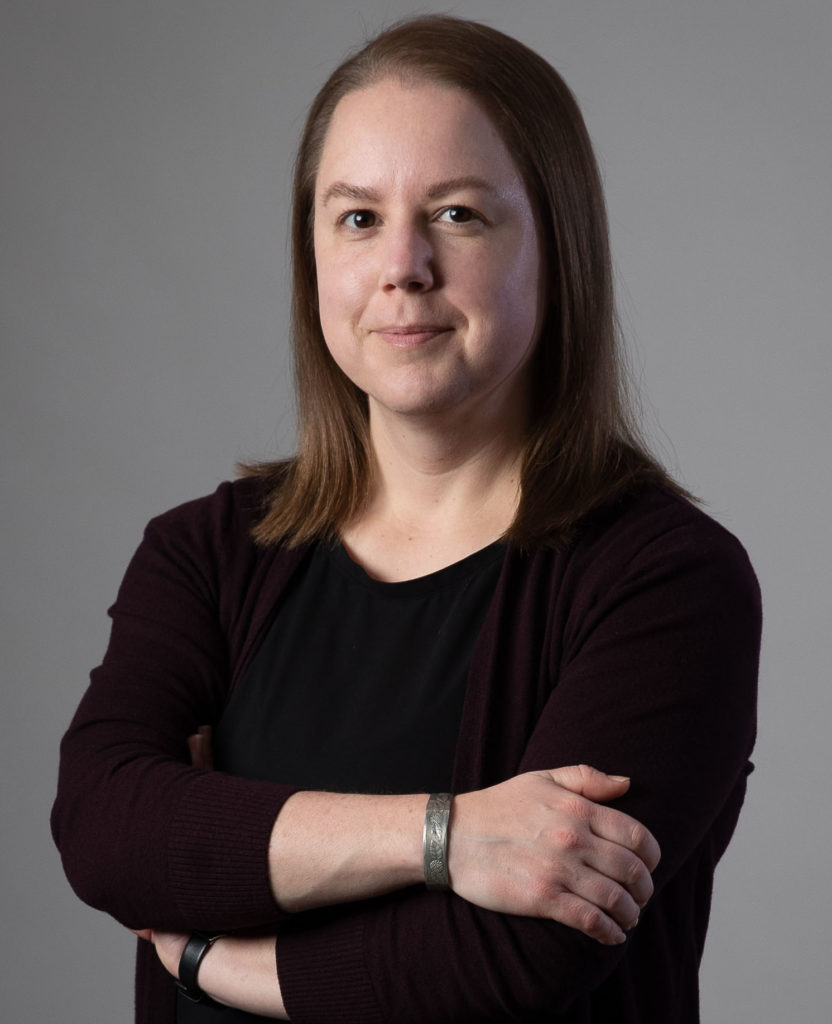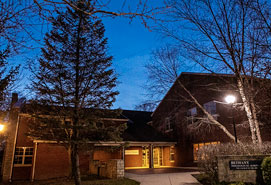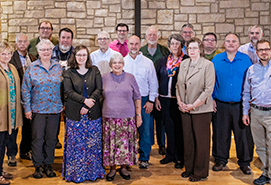Meet Dr. Maggie Elwell

Dr. Elwell arrived at Bethany in the fall of 2022 from the University of Maryland, where she taught from 2019-2022. She earned her BA from Swarthmore College, her MA in teaching from Johns Hopkins University, and both her MDiv and PhD from Princeton Theological Seminary. At Bethany, her courses are broadening the offerings in both Peace Studies and Theopoetics, and she is helping to administer the recent $1M grant from the Lilly Endowment.
Your CV already includes varied experiences as a teacher and scholar, teaching college students and middle schoolers, and investigating such varied topics as contemporary crime novels, Russian literature, and the first chapter of the Gospel according to Luke. In what ways do you see these varied interests and experiences informing your work at Bethany?
I see being a teacher and scholar at Bethany as an opportunity to do meaningful work well. I’m delighted that my background of teaching in Baltimore City Schools, Princeton Seminary, and the University of Maryland finds resonance with our mission, since I have always loved the classroom as a place of joy and high expectations.
I am a critical theorist of violence, which means my teaching and scholarship involves synthesizing ideas and experiences of that concept with explanatory goals. I am also a narratologist, which means I do this explanatory work about violence through engagement with narratives and their structures and frames. Working via stories is a particularly useful method for Peace Studies because within the field, even outside of a seminary context, we already admit that we are not objective: we are happily, loudly, fully biased toward peace and justice. That is an ethical stance that defies the traditional academic values of objectivity and distance. Likewise, stories are never objective, never able to be held at arm’s length; they are always embodied, emotionally and psychologically, with histories of people and places and other stories, with rhythm, with voice. I also like stories as a method because I want what I say and write to be understandable and memorable at many scales, to many kinds of audiences.
Your teaching and scholarship appears to center the experiences and memories of people who have experienced violence. Can you talk about how that approach shapes your teaching in Peace Studies?
Each of us has a history of violence: individually and culturally. I am talking about personal sufferings of violence and things done or left undone; and I am talking about issues of race and racism, gender and sexuality, wealth and poverty. My stance is that you have to start with these histories to get to where we want to go. Genuine peacebuilding — the kind that makes sense and feels solid, the kind that walks with a firm gait and has both its eyes open — requires a robust mental concept and a visceral engagement with those histories of violence. Understanding violence requires not just information or propositional and theological arguments about it, but intellectual and visceral engagement in the tragic choices it forces and the moral quandaries it poses. Peacebuilding cannot happen, and it does not happen, without that reckoning.
What are some new courses you are teaching or planning that you find particularly exciting?
I’m excited about all my courses, but there’s three I’ll highlight. Race, Racism, and Religion: Bridging the Sunday Morning Divide, which will be offered for the first time in Fall 2023. We’ll look to explore why Sunday morning is still the most segregated time in the U.S., discussing and experiencing the meeting of race and religion in America.
A course called Policing and Prison begins in Baltimore with the community responses to the 2015 death of Freddie Gray after his arrest. From there we will look at the history of the development of the police and the prison in order to understand the conversations and long-held beliefs of various stakeholders. The goal is understanding the topic’s complexity for the purpose of successfully navigating congregational and community feelings and perceptions of policing and criminality for prophetic teaching, discussion, preaching, and other kinds of leadership.
Truth, Lies, and Trust in Storytelling explores memoir, fiction, and personal narratives when memories disagree, events are forgotten or misremembered, and generational memories morph over time. Where’s the line between the true and the real?
You will have the opportunity to shape Bethany’s Peace Studies program. What are some of your interests and ideas in that area in particular?
First is that understanding violence is a key component in seeking and working for peace. Students should be able to think about violence at different scales and tempos and to know the connections between physical violence and societal oppression.
Second, the Peace Studies program at Bethany will have a visible impact on students’ approaches to the relationships in their lives in regards to issues of peace, violence, and justice at individual, close-relational, community, and societal levels.
Almost as soon as you joined the faculty, you got involved in planning ways to get Bethany students more involved in community engagement. What connections do you see between that work and your teaching and scholarship?
Peace Studies is an area of academic study that requires significant, sustained commitment to justice, so developing prospects for students in community engagement is necessary in order for me to do my work and to be a person of integrity. And, importantly, it gives me joy.
This article was originally published in the Fall/Winter 2023 issue of Wonder & Word magazine.








 Green Circle: Bethany invests in 100% renewable energy.
Green Circle: Bethany invests in 100% renewable energy.